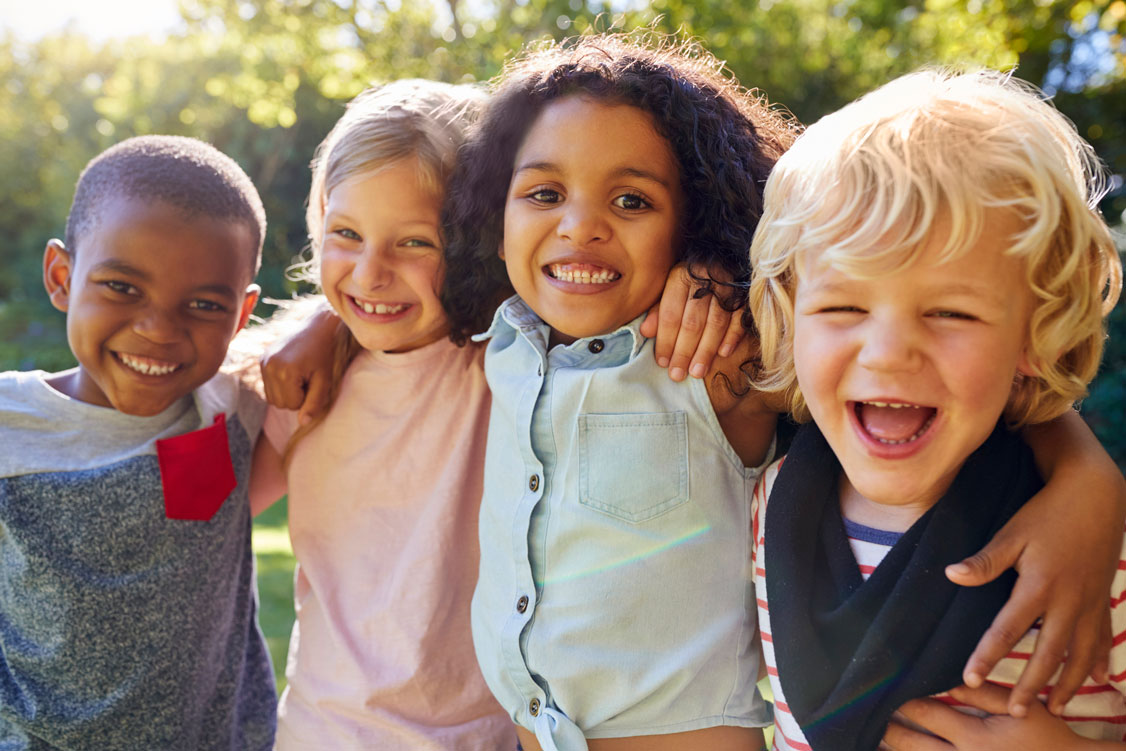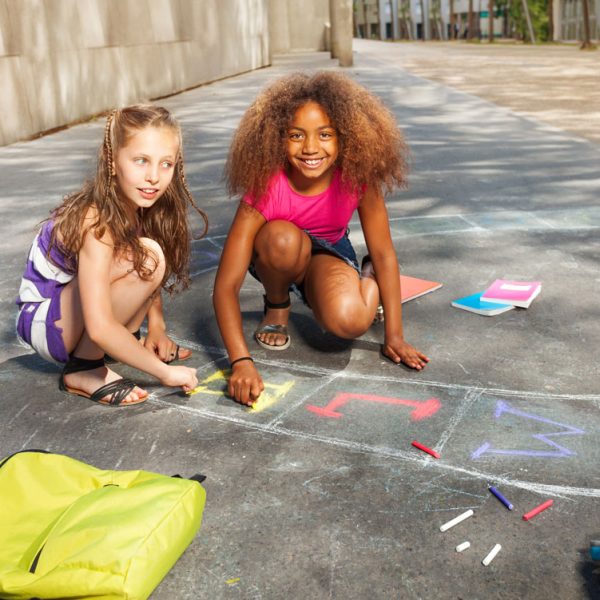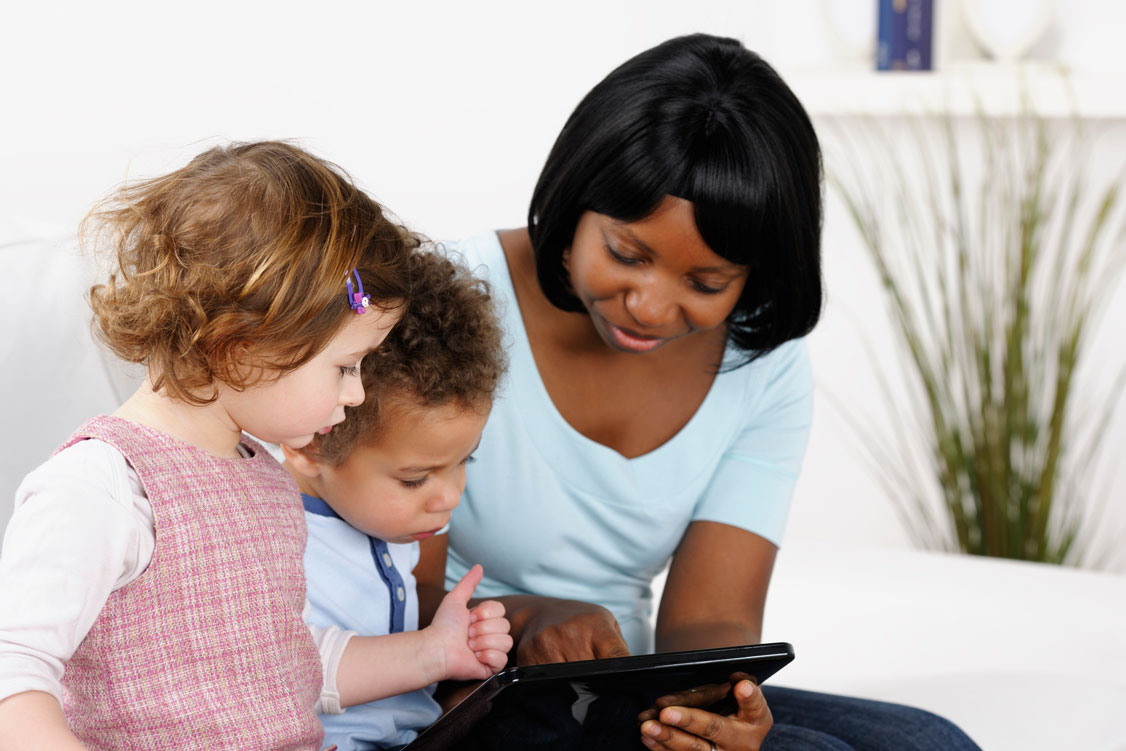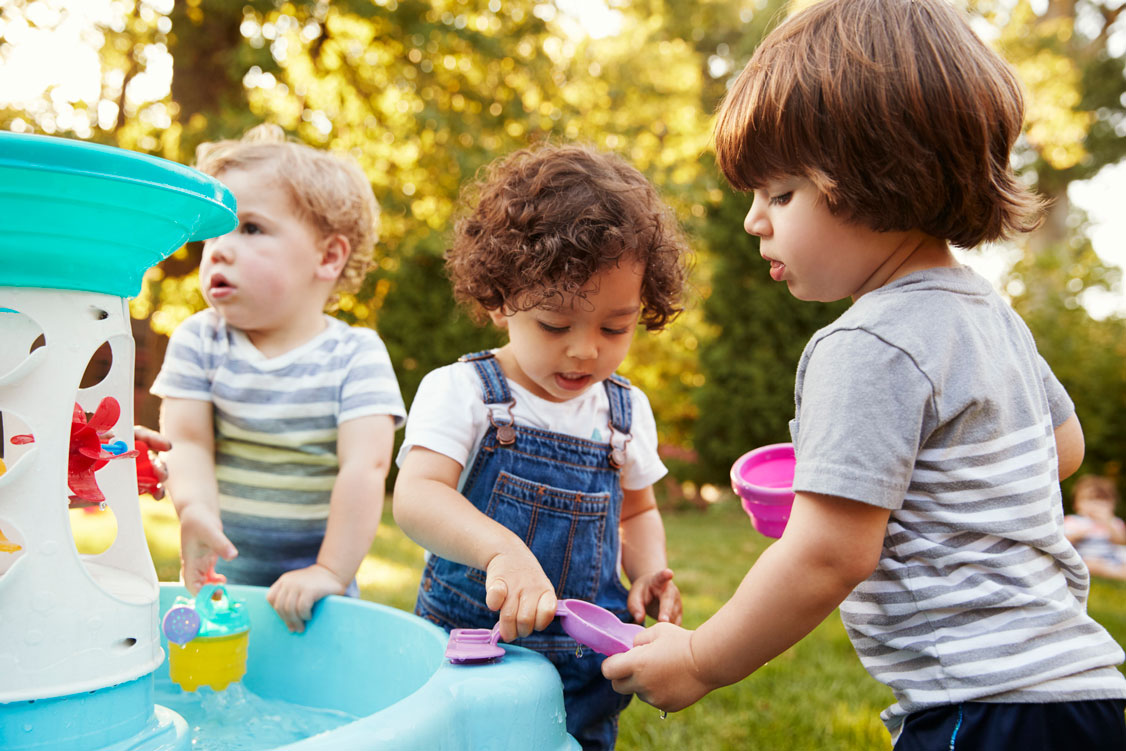Celebrating differences, similarities, & what makes us each unique
Children will begin to notice differences in others, but it’s important that they know being different can be great! Learning to appreciate others’ unique strengths and talents will help your kids develop self-confidence and form healthy relationships with others.
It’s easier for kids to put people, places, and things into categories so that they can understand and organize the world. They will lump people based on things like gender, race, or age. While this can be useful to help them understand their surroundings, it can also lead to discrimination. It’s important to show kids that different doesn’t mean “bad.”
Talk to your kids about how people from other groups may feel when they are being treated poorly. Help your child develop empathy and understand what it’s like to be from another group; talking about race, gender, sexuality, age, religion, and physical abilities can lead to lower levels of prejudice.
It’s not enough to simply say you believe everyone is equal. You need to show your children that you value diversity by engaging in activities with diverse people.
- Your child may notice that some people use a wheelchair or hearing aid, others may use guide dogs or communicate using sign language. Be open to your child’s questions about people’s different abilities. Ignoring or “shushing” them may lead to misconceptions and labeling of those individuals as “weird” or “strange.”
Did you know
that depictions of certain minorities in the media aren’t always accurate? Point this out to your child and discuss how stereotypes can be harmful to others.
- Liking someone and agreeing with them are two completely different things. You might not like your boss, but you respect their position. Your child may not like their teacher, but they should always follow their directions when in the classroom.
- Talk to your child about their feelings and help them explore different ways of thinking: Why do they think that the teacher has to do things certain ways? The more practiced your child gets at considering others’ perspectives, the easier it is to be respectful even when they disagree.
- The assumption that everyone identifies as heterosexual – that all men are attracted to women and that all women are attracted to men – can be a prevalent assumption in society. It’s also often the only frame of reference that children get from television and movies. When your child is at home, try to normalize examples of different sexualities, different types of relationships, and the fundamental importance of love.
- If your child comes home from school and tells you that they are confused because one of their same-sex peers has a crush on them, consider focusing on how nice it is when others care about them, or all of the lovely things about your child that would make anyone have a crush on them.
- There are no rules about who your child is allowed to care about or want to spend time with, and there are no rules about who others are or aren’t allowed to care about.
- Do not excuse behavior as “boys being boys” (like punching or hitting) or “girls being girls” (like name calling or rumor starting). Communicate the importance of caring for others, respecting others, and behaving in ways that align with a larger value system.
Children can become more aware of other people’s personal space by reading, evaluating, and responding to body language.
- Encourage your child to read cues (verbal and nonverbal) about when others may not want to be touched – even if this means no hugs or playful interactions. Respecting others’ personal space is an extension of the “hands to self” concept that children often learn at a young age.
- Point out situations such as “Sally backs away from you when you go to hug her, I don’t think she wants to be touched,” or “He said no, that means he doesn’t want you to touch his things so you need to respect that.”
Kids may need help learning ways to deal with bullying or strategies to stop their own bullying behavior.
Bullying isn’t respectful! Around this age, bullying may become a bigger issue in your child’s life. They may feel bullied at school, or perhaps they are doing the bullying.
If your child is being bullied, encourage them to find a “teammate” – a friend or classmate with whom they feel safe and who they can count on to support them.
- Empower your child to talk with teachers and other adults when or if they feel that someone is being hurtful. While we want to teach our children to be effective problem-solvers and communicators, we also want them to know that it’s okay (and important) to seek adult support if their individual efforts to solve a problem are unsuccessful.
- Kids pick up on your behavior, so do not be a bully yourself. If you’re gossiping about others, your child will be more likely to mirror your behavior.
- If your child is engaging in bullying, consider what feelings might be behind their choices. Often times children use these types of behaviors to distract from feelings of low self-esteem or self-doubt. Talk to your child about their feelings, their experiences, and ways of getting their needs met.





